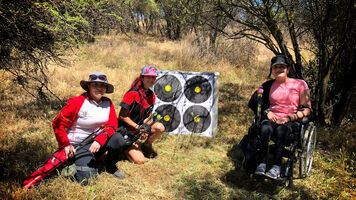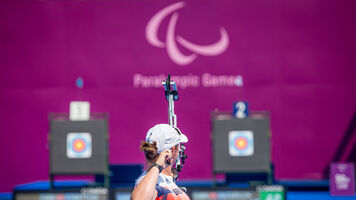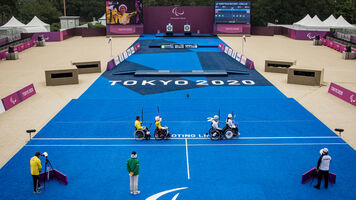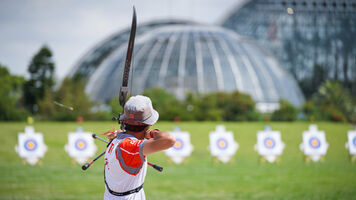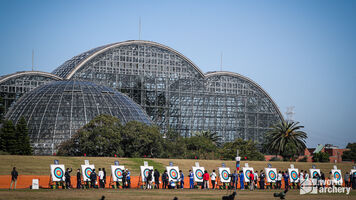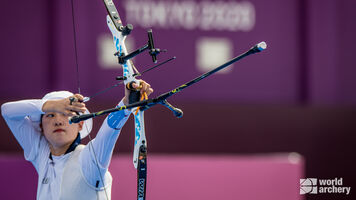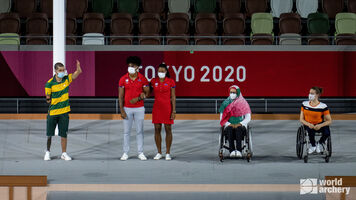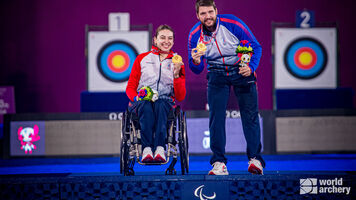Preview: Women’s finals at the Tokyo 2020 Olympic Games
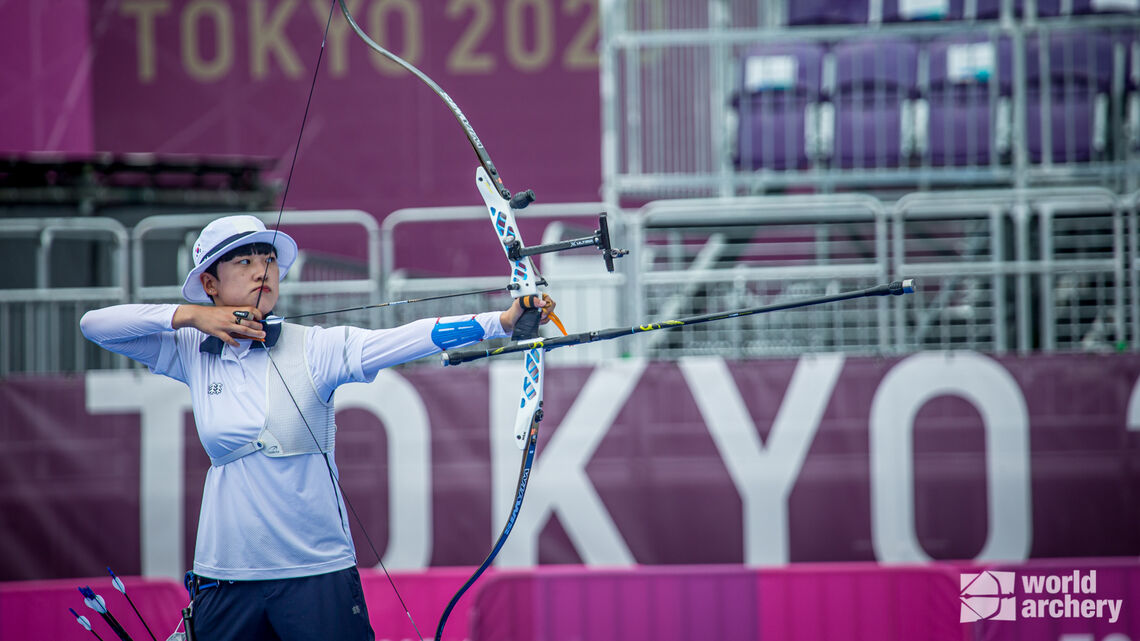
It’s the penultimate day of competition at the Tokyo 2020 Olympic Games – and it’s today that we crown the individual champion in the women’s event.
Korea has won gold at eight of the last nine editions of the Games and the country is represented by two archers – top qualifier An San, who is already a double-gold-medallist in Tokyo, and reigning Hyundai Archery World Cup Champion Kang Chae Young – in the quarterfinals here.
They’re joined by six other women, all capable of causing upsets in the arena.
Only three matches stand between each of them – and the Olympic gold.
Key information
What’s happening? Women’s finals at the Tokyo 2020 Olympic Games on 30 July 2021.
What’s at stake? The title of Olympic Champion.
Who’s competing? Sixty-four athletes began the competition. Just eight remain – and only one will finish these Olympics unbeaten and be crowned champion.
What’s the story? Top qualifier An San has been impeccable throughout this tournament. She only has to win three more matches to become the first athlete in archery’s modern Olympic history to win three gold medals at a single edition of the Games.
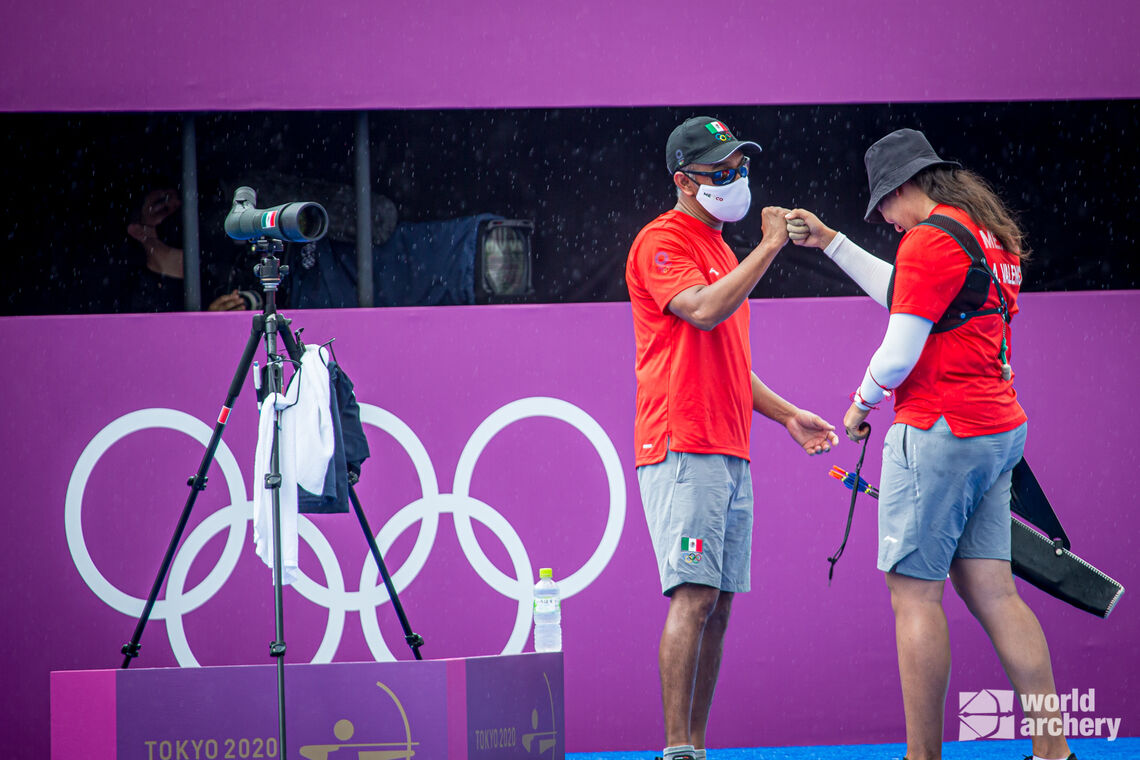
Quarterfinal line-up
Seed provided in brackets.
- An San, Korea (1) versus Deepika Kumari, India (9)
- Mackenzie Brown, USA (5) versus Alejandra Valencia, Mexico (4)
- Kang Chae Young, Korea (3) versus Elena Osipova, ROC (22)
- Lucilla Boari, Italy (23) versus Wu Jiaxin, China (18)
Story so far
The elimination bracket has been a tale of two halves at these Olympics.
The top has gone almost exactly to form, with four of the higher-seeded athletes making this stage of the tournament. An San has looked impeccable, Deepika Kumari delivered in an excellent shoot-off, Mackenzie Brown is exuding confidence and Alejandra Valencia knows what it means to win at this level, having finished fourth at the Games five years ago.
The bottom, however, has been rocked by upsets to the number two seed, Jang Minhee, in the second round – plus losses dealt to sixth and seventh qualifiers Aida Roman and Yamauchi Azusa.
On paper, it leaves Korea’s Kang Chae Young, the former world number one, as a clear favourite to make the final.
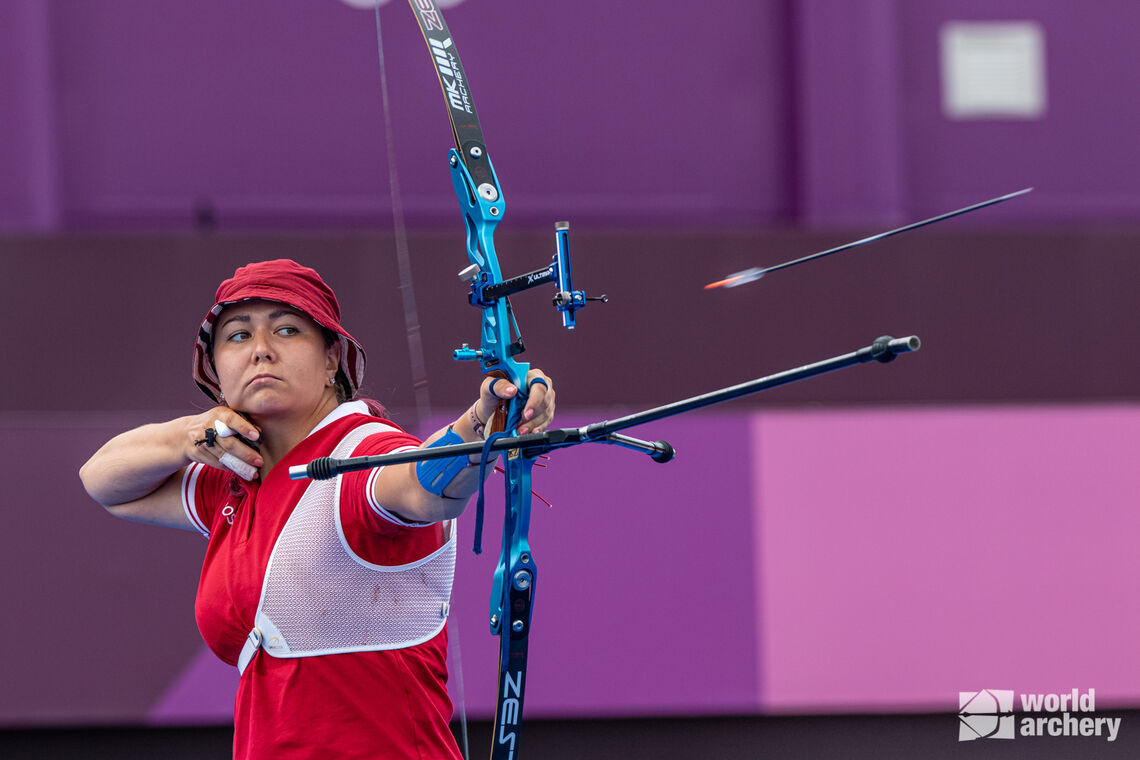
If they win…
An San, Korea: …she would become the first archer in archery’s modern history to win three gold medals at one edition of the Olympics, the fifth archer in history to win three gold medals at the Games and the ninth Korean woman to win an individual gold.
Deepika Kumari, India: …she would become the first archer in history to win an Olympic medal. It doesn’t need to be gold for that – any podium place will do!
Mackenzie Brown, USA: …she would become the third USA woman to be crowned Olympic Champion and the first since 1976. No woman from the States has climbed the individual podium since Luann Ryon’s win that year in Montreal.
Alejandra Valencia, Mexico: …she would become the first Mexican archer to win an individual gold. A podium would make her the third archer (and third woman) from Mexico to take an individual medal after Aida Roman took silver and Mariana Avitia won bronze in 2012. Valencia already took bronze in the mixed team event at these Games.
Kang Chae Young, Korea: …she would become the ninth Korean woman to win an individual gold.
Elena Osipova, ROC: …she would become the first champion from the ROC since the break-up of the Soviet Union.
Lucilla Boari, Italy: …she would become the first Italian woman to climb the individual podium at the Olympics and the second winner from Italy after Marco Galiazzo’s victory at Athens 2004.
Wu Jiaxin, China: …she would become China’s second individual Olympic Champion after Zhang Juan Juan in 2008 and win China’s first medal in three editions of the Games.
Competition format
Athletes are seeded on their qualifying results. The maximum score is 720 points.
They then shoot through head-to-head brackets, in which the winning athlete in each match advances and the loser is eliminated until a champion is crowned.
Individual matches are decided using the set system in which the goal is to accrue six set points. Matches usually last under 15 minutes.
Each match is broken down into sets of three arrows. The archers shoot their arrows alternately with a time limit of 20 seconds per shot.
At the end of each set, the archer with the highest total arrow score in the set is awarded two set points. Both archers receive one set point if the arrow score is tied. The maximum total arrow score in a single set is 30 points.
If the athletes are tied on five set points after five sets, the match is sent to a tiebreak.
Each archer shoots one arrow and the archer whose arrow lands closest to the centre of the target wins the match.










